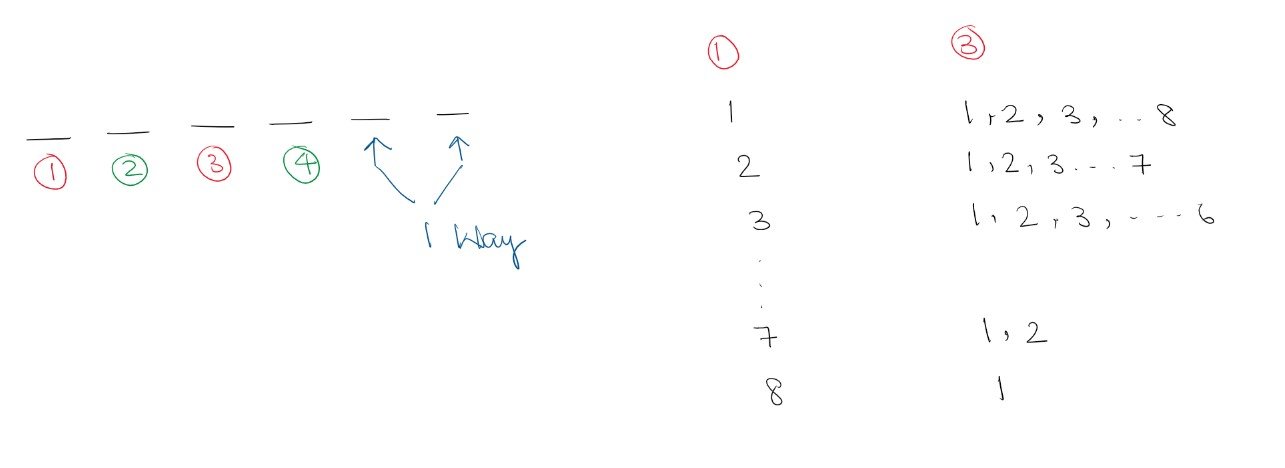Bunuel wrote:
A certain identification code consists of 6 digits, each of which is chosen from 1, 2, ..., 9. The same digit can appear more than once. If the sum of the 1st and 3rd digits is the 5th digit, and the sum of the 2nd and 4th digits is the 6th digit, how many identification codes are possible?
A. 625
B. 720
C. 1,296
D. 2,025
E. 6,561
A good one !
The fifth and the sixth place can be filled only in one way.
Let's take the first and the third position -
Assume we have the number \(1\) in the first digit, the third digit can be {\(1,2,3,4,5,6,7,8\)}. Note: The third digit cannot be the number \(9\), else the sum of the first and the third digit will be \(10\), and the fifth digit will be a two-digit number. This is not possible.
If we have the number \(2\) in the first digit, the third digit can be {\(1,2,3,4,5,6,7\)}. Note: The third digit cannot be the number \(8\) or \(9\), else the sum of the first and the third digit will be a two-digit number. This is not possible.
If we have the number \(3\) in the first digit, the third digit can be {\(1,2,3,4,5,6\)}. Note: The third digit cannot be the number \(7\) or \(8\) or \(9\), else the sum of the first and the third digit will be a two-digit number. This is not possible.
So we see a pattern here
First Digit → The number of ways the third digit can be filled in If the first digit is = 1 → The number of ways the third digit can be filled in = 8
If the first digit is = 2 → The number of ways the third digit can be filled in = 7
If the first digit is = 3 → The number of ways the third digit can be filled in = 6
If the first digit is = 4 → The number of ways the third digit can be filled in = 5
If the first digit is = 5 → The number of ways the third digit can be filled in = 4
If the first digit is = 6 → The number of ways the third digit can be filled in = 3
If the first digit is = 7 → The number of ways the third digit can be filled in = 2
If the first digit is = 8 → The number of ways the third digit can be filled in = 1
If the first digit is = 9 → The number of ways the third digit can be filled in = 0 (ignore this case)
Hence, we can have \(8 + 7 + 6 + 5 + 4 + 3 + 2 + 1 = 36\) pairs of the first and the third digit.
The same analysis also holds true for the second and the fourth digit.
Hence, there will be 36 pairs of the second and the fourth digit as well.
Number of possible identification codes =\( 36 * 36 = 1296\)
Option C
Attachments

Screenshot 2023-08-09 004725.jpg [ 26.69 KiB | Viewed 20898 times ]



 95%
(hard)
95%
(hard)
 44%
(02:44)
wrong
44%
(02:44)
wrong  based on 282
sessions
based on 282
sessions
